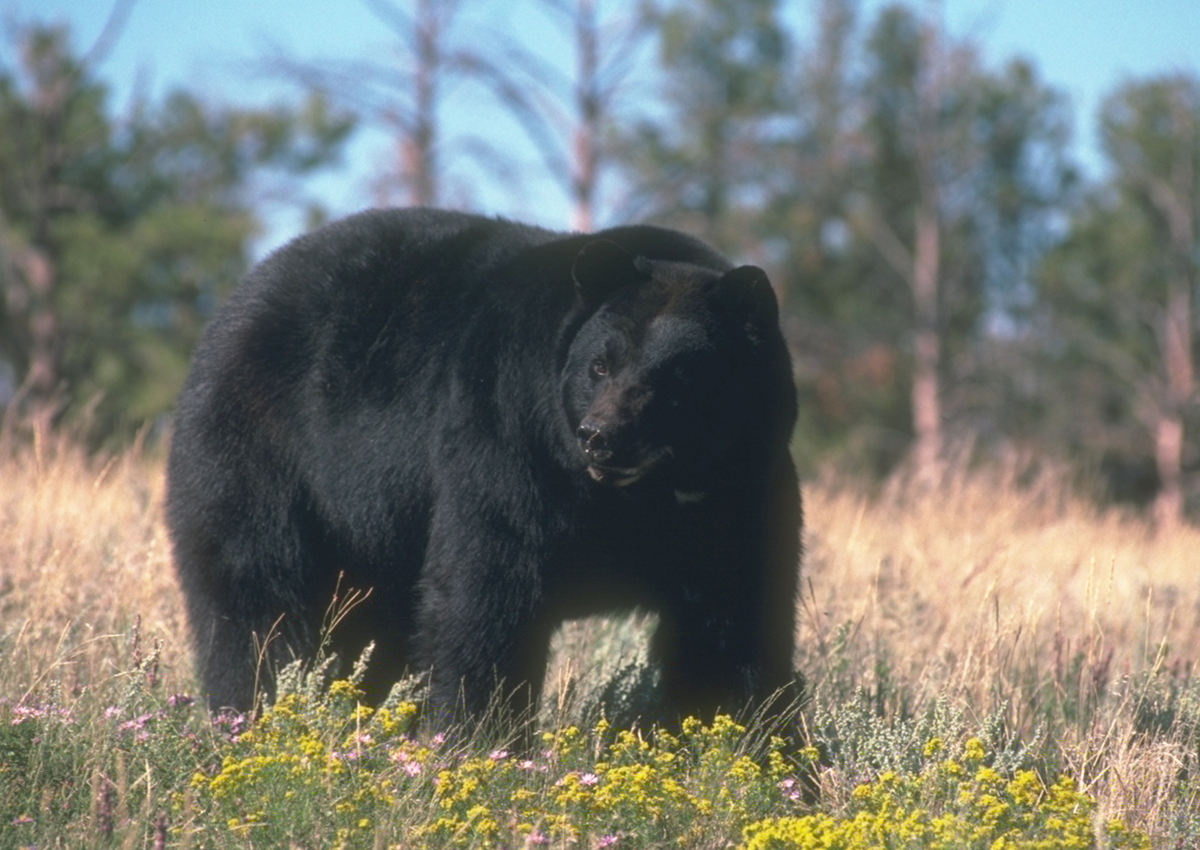Summer Mating Season Has Black Bear on the Move
 School is out, the temperature is rising and the beaches are calling – a typical summer in Alabama. Add to that summertime list an increase in black bear sightings outside the animal’s primary ranges in the state. Most recently, numerous sightings of a black bear were reported in both Oxford, Ala., and Tallapoosa County, where the bear was observed eating from trash cans.
School is out, the temperature is rising and the beaches are calling – a typical summer in Alabama. Add to that summertime list an increase in black bear sightings outside the animal’s primary ranges in the state. Most recently, numerous sightings of a black bear were reported in both Oxford, Ala., and Tallapoosa County, where the bear was observed eating from trash cans.
Seeing a black bear in Alabama is uncommon and exciting, but it is no cause for alarm.
“All bears sighted this year have been behaving normally and exhibiting a natural fear of humans,” said Steve Bryant, District 2 Supervising Wildlife Biologist for the Alabama Division of Wildlife and Freshwater Fisheries (WFF). “So far there are no reports of bears acclimating to human activities or causing any property damage.”
Alabama’s relatively low black bear population appears to be on the rise. A small population exists in Mobile and Washington counties, but bears migrating from Georgia have established a viable population in northeast Alabama as well. WFF is currently working with Auburn University researchers and other state and federal agencies to collect data on the state’s black bear population and movements.
“Late spring and early summer is usually when you’ll see sub-adult males that have been expelled from their mother’s territory,” Bryant said. “They are often spotted while searching for a place to establish a new home range. Black bear mothers occasionally allow a sub-adult female to become established within her home range, but she won’t tolerate any of her male offspring doing the same. Additionally, larger adult males will often wander for miles during this time of year in search of receptive females.”
Other potential reasons for the increased visibility of black bear include habitat fragmentation and natural population growth.
Alarmed citizens who have seen a bear in their subdivision, on their property, or crossing a road are encouraged to avoid the bear and report it to their local WFF District Office, county sheriff’s office or local police department.
“Walking through a neighborhood is not considered abnormal activity for a bear,” said Bryant. “It’s just visiting and will pass through as it looks for a less frantic location to enjoy life.”
Black bear is a protected species in Alabama. Shooting at one is a Class A misdemeanor, which carries a potential minimum fine of $2,000. Other penalties for firing at a black bear include the potential loss of hunting and fishing license privileges for three years and possible jail time.
In 2015, a Heflin man received a one-year suspended jail sentence, nine months supervised probation and was fined $2,000 plus court costs for shooting at a black bear. The bear was unharmed.
Bears are typically secretive, shy animals that avoid human interaction. To prevent accidently attracting one to your home, feed pets just enough food that they can consume in one meal. If bears have been reported in your area, wait to put your household trash out until the day of pick-up. Secure uneaten pet food, trash bins, bird and other wildlife feeders as they are easy pickings for hungry young bears.
What should you do if you are lucky enough to encounter/observe a black bear? WFF offers these suggestions:
- Do not be frightened.
- Do not approach the animal.
- Do not run from the bear; back away slowly.
- Stand tall and upright and make loud noises.
- Avoid direct eye contact with the bear.
- Make sure the bear has an unobstructed direction to escape.
- Never purposely feed a bear.
- Never approach a bear with cubs; this will provoke an attack.
“These animals are an important wildlife resource in Alabama woodlands,” Bryant said. “If you have an unexpected encounter with a black bear, don’t panic. Consider yourself lucky to have had the experience.”
The public is encouraged to report black bear sightings to WFF district wildlife offices. For WFF district contact information, visit www.outdooralabama.com/wildlife-section. Bear sightings can also be reported online at https://game.dcnr.alabama.gov/BlackBear, www.alabamablackbearalliance.com or by email to Thomas Harms at [email protected].
For more information about black bears in Alabama, visit www.outdooralabama.com and www.alabamablackbearalliance.org.

